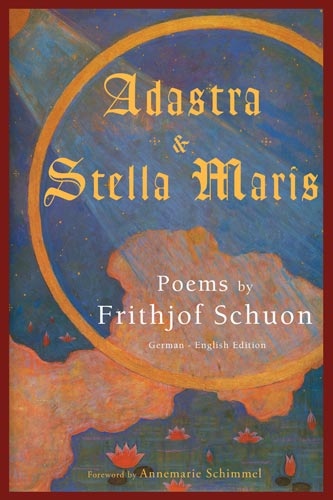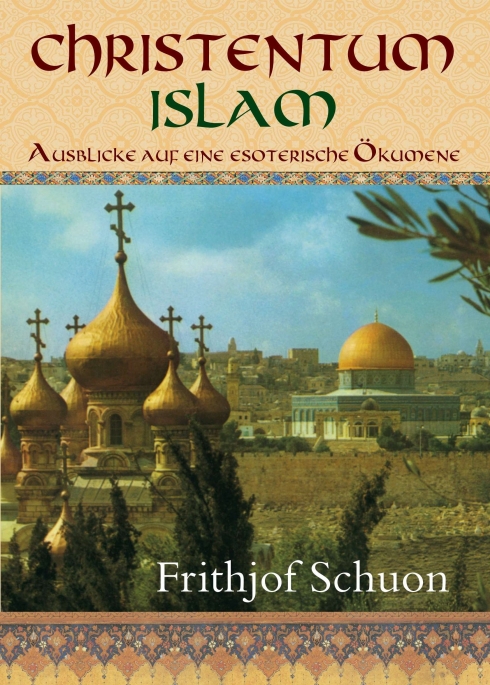During the last three years of his life Frithjof Schuon wrote approximately 3,500 short poems in his mother tongue German. These poems, which have been called “metaphysical music,” cover every possible aspect of spiritual doctrine, practice and virtue, as well as the role and function of beauty. They express every conceivable subtlety of spiritual and moral counsel – and this is not merely in general terms, but with uncanny intimacy, detail and precision. They express the same unerring sharpness of intellect, profundity, comprehensiveness and compassion which one finds in the range of Schuon’s better-known dialectical writings.
Some of the poems are autobiographical, with reminiscences of places experienced: Basle and Paris, the fairy-tale streets of old German towns, Morocco and Andalusia, Turkey and Greece, the American West. Others evoke the genius of certain peoples, such as the Hindus, the Japanese, the Arabs, the American Indians, and also the Cossacks and the Gypsies. Yet other poems elucidate the role of music, dance, and poetry itself. Occasionally, the superficiality of the modern world comes in for biting, and sometimes fiercely humorous, comment:
A worldly banquet: chandeliers glitter
In the large hall –
And brilliant society, ladies and gentlemen,
Sit down for the meal.
They talk of everything and they talk of nothing –
The wine is red,
And so are the flowers. But no one, no one
Thinks of death.
Adastra and Stella Maris: Poems by Frithjof Schuon represent the heart of Schuon’s German poems. These two books, combined in one volume, express, in the words of Annemarie Schimmel, “a mystery that lies beyond the normal human expression…Here we listen to the thinker who, far from the complicated scholarly sentences of his learned prose works, sings the simple prayers of the longing soul…” The German, which perfectly reflects the most ancient canons of the prosodic norm, carries the echo of a nightingale in the gardens of Paradise. Each poem is a diamond – sparkling and clear, an architectural masterpiece full of light. The beauty of this poetry, which irresistibly combines profundity and simplicity, touches upon that luminous center where the way of knowledge and the path of love converge. Readers familiar with Schuon’s many books and articles will find here the same elements that characterize the rest of his vast corpus: universality, essentiality, primordiality; yet in a form that makes his message more accessible. These lyrics speak to the heart, the mind and the soul with compelling immediacy. The spiritual traveler may carry this book for a lifetime and not exhaust its content, because its content is the inexhaustibly beautiful life of the spirit.
Adastra and Stella Maris: Poems by Frithjof Schuon also contains an insightful foreword by Dr. William Stoddart .



